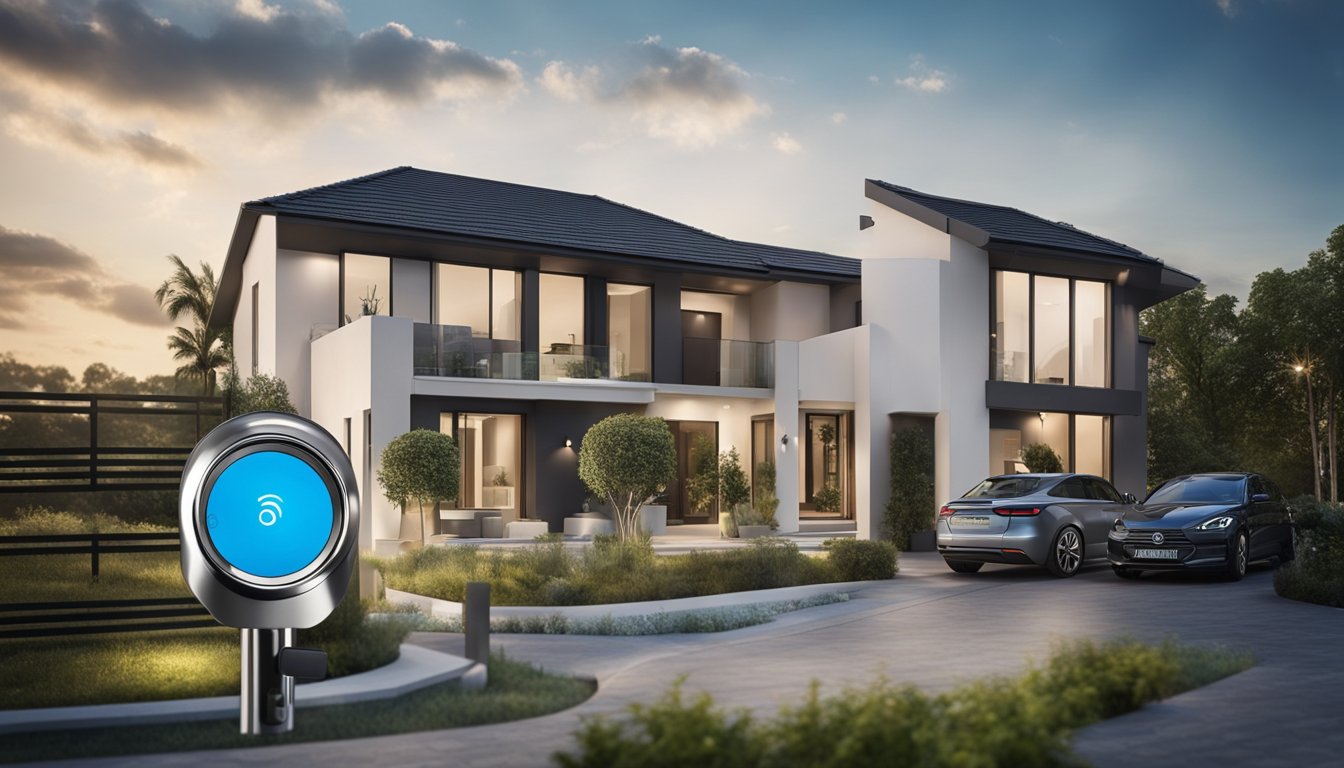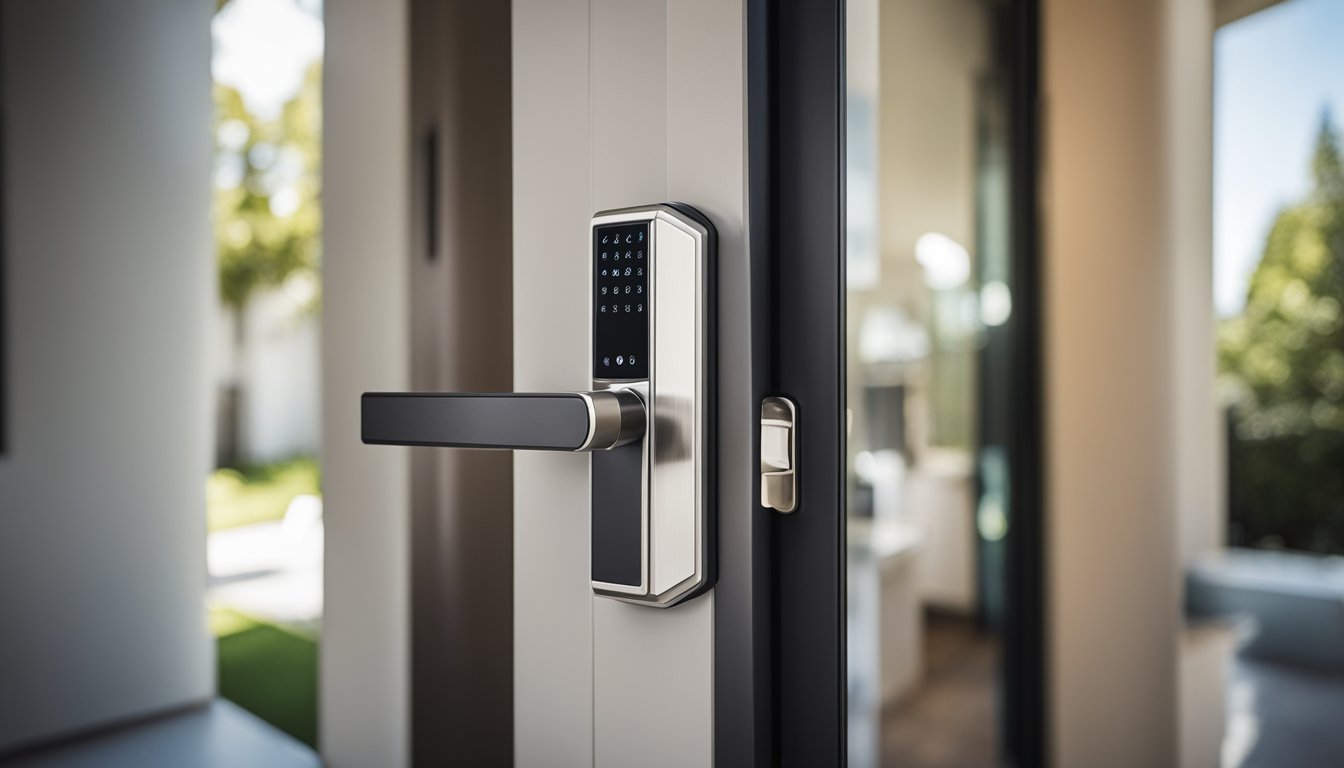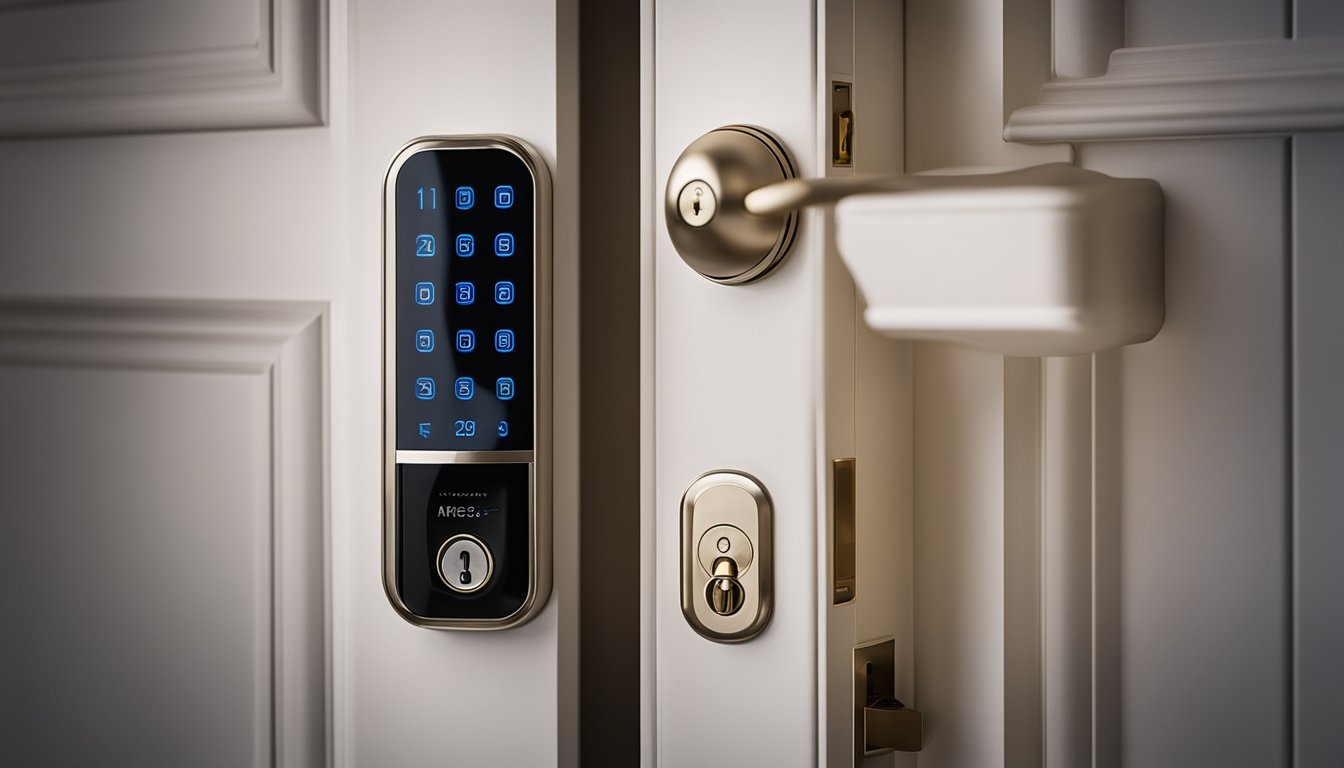Late updated: 22 Dec 2024 15:12
Written by: Elena Prescott
The Impact Of Lock Technology On Home Security: Enhancing Safety In Modern Homes
Lock technology has experienced significant advancements, reshaping our approach to home security. From traditional keys to sophisticated smart locks, the evolution has brought remarkable changes to how we protect our homes. This transformation is not just about adding convenience but also about enhancing security to suit contemporary needs. The integration of smart lock technology offers a blend of cutting-edge features and connectivity, which are critical in safeguarding our spaces more effectively than ever before.

As the landscape of home security continues to change, our reliance on digital solutions becomes more pronounced. The shift from conventional to smart locks is an essential part of this trend, providing us with unprecedented control and flexibility. With capabilities such as remote access and real-time alerts, smart locks have dramatically influenced how we manage our security concerns. These innovations have given homeowners a sense of safety while integrating seamlessly into modern life.
Yet, with widespread adoption comes new questions and concerns. Are smart locks truly secure? What happens if technology fails us? As we explore these elements, we aim to provide insights into what makes modern lock systems both a boon and a challenge in today's security landscape.
Key Takeaways
- Lock technology has significantly evolved over the years.
- Modern locks provide enhanced security features and flexibility.
- New technologies raise both opportunities and concerns for home safety.
Evolution of Lock Technology and Home Security
Lock technology has experienced significant transformations, shaping the way we secure our homes. We've moved from traditional mechanical locks to electronic and biometric systems, with keyless options now integrating with smart home devices. These advancements have enhanced accessibility and security.
Transition from Mechanical to Electronic Locks
Mechanical locks were the cornerstone of home security for centuries. Traditional locks relied heavily on physical keys, which presented challenges, such as the potential for key loss or theft. With the advent of electronic locks, the need for physical keys has decreased.
Electronic locks offer keyless entry through codes or cards, enhancing security by reducing the risk of lock picking. These systems often include features like automatic locking and fail-safe designs. The transition to electronic locks represents a significant shift towards more secure and convenient home protection.
Advancements in Biometric Recognition
Biometric technology has further revolutionised our approach to home security. Biometric locks utilise unique physical characteristics, such as fingerprints or facial recognition, as access controls. This method provides an added layer of security, as these traits are much harder to replicate or steal than traditional keys.
Fingerprint recognition has become one of the most popular biometric methods due to its reliability and speed. Facial recognition is also gaining traction, offering a seamless and contactless option for access. Biometric access systems are now more commonly found in both residential and commercial settings.
Integration with Smart Home Devices
The integration of smart locks with home automation systems is a major leap forward. Smart locks can connect with devices such as Google Assistant or Amazon Alexa, allowing us to control locks via voice commands or smartphones. This technology enables remote access, which is particularly useful for granting temporary entry to guests.
Smart lock systems often feature activity logs and notifications, offering us insight into who accesses our homes and when. These tools have become integral to the smart lock market, prioritising not only convenience but also enhanced vigilance. The connection between smart locks and the broader realm of smart home devices demonstrates the ongoing evolution and sophistication of home security.
Security Features and Concerns of Modern Lock Systems

Modern lock systems have revolutionised home security with advanced technology. While these locks provide improved protection and features like remote accessibility, they also introduce new security and privacy challenges.
Enhanced Security and Real-Time Monitoring
Our homes are now more secure with the integration of remote access control and real-time monitoring features in smart locks. Using Bluetooth technology and internet connectivity, these locks can be managed through a smartphone app, allowing us to monitor access logs and receive real-time notifications of any entry attempts.
These systems offer enhanced security by supporting temporary or emergency access. This ensures that, even in power outages, there's a backup access method, boosting both security and convenience.
Addressing Privacy and Security Concerns
With advanced security features come significant security concerns. The potential for security breaches exists due to connectivity features. These breaches could arise from hackers exploiting vulnerabilities in the lock's system.
Privacy concerns are also a point of discussion, as data from access logs and real-time monitoring could potentially be misused. It's crucial to ensure data encryption and robust security measures are in place to prevent unauthorized access. We focus on implementing protections that keep both systems and user data safe from intrusions.
Homeowners' Adaptation to New Lock Technologies
Adapting to these new technologies involves overcoming both initial scepticism and learning curves. Homeowners must be comfortable with artificial intelligence and digital interfaces for managing lock systems. The convenience of being able to set remote access or check logs anytime builds confidence in these advanced security systems.
Education and support are essential. Users need guidance on setting up and using these technologies effectively. Our commitment lies in making these systems accessible, providing reassurance that modern locks not only enhance security but are user-friendly and reliable solutions for everyday life.
Frequently Asked Questions

Lock technology advancements have significantly influenced home security. Smart locks offer improved convenience and security, while remote access and biometric features have reshaped how we protect our homes. These innovations align with the needs of modern homeowners seeking both security and integration with other technologies.
How has smart lock adoption changed home security strategies?
Smart lock adoption has revolutionised home security strategies by providing homeowners with more control and flexibility. They offer keyless access, remote monitoring, and integration with smartphones, making home security more adaptable to modern lifestyles. As a result, our approach has shifted towards prioritising technological solutions alongside traditional methods.
What are the potential vulnerabilities of digital lock systems?
While smart locks offer numerous benefits, they also come with potential vulnerabilities. These might include hacking risks, software malfunctions, and potential power failures. To mitigate these risks, it's crucial to select reputable brands, keep software updated, and have a backup entry plan in place.
In what ways do modern locking mechanisms integrate with home automation systems?
Modern locks integrate seamlessly with home automation systems, enabling homeowners to manage security through centralised apps. They can connect with lighting systems, security cameras, and other smart devices, offering a comprehensive home security ecosystem that enhances protection and convenience.
How do biometric locks enhance residential security measures?
Biometric locks provide enhanced security by requiring unique personal identifiers, such as fingerprints or facial recognition, for access. This adds a layer of personal identification and reduces the risk of unauthorised entry, thus improving security for our homes in a more precise and individualised manner.
What are the benefits of remote access control for residential properties?
Remote access control allows us to manage home entries from virtually anywhere. Through smartphone apps, we can grant access to guests, monitor lock status, and receive security alerts in real-time. This not only provides peace of mind but also ensures our homes remain secure even when we are not physically present.
How has the evolution of lock technology affected insurance policies for homes?
With the evolution of lock technology, insurance policies are beginning to reflect these advancements. Homes equipped with advanced security systems, including smart locks, may qualify for reduced premiums. Insurers recognise the improved security measures and lower risk of theft, encouraging policyholders to adopt newer technologies.
